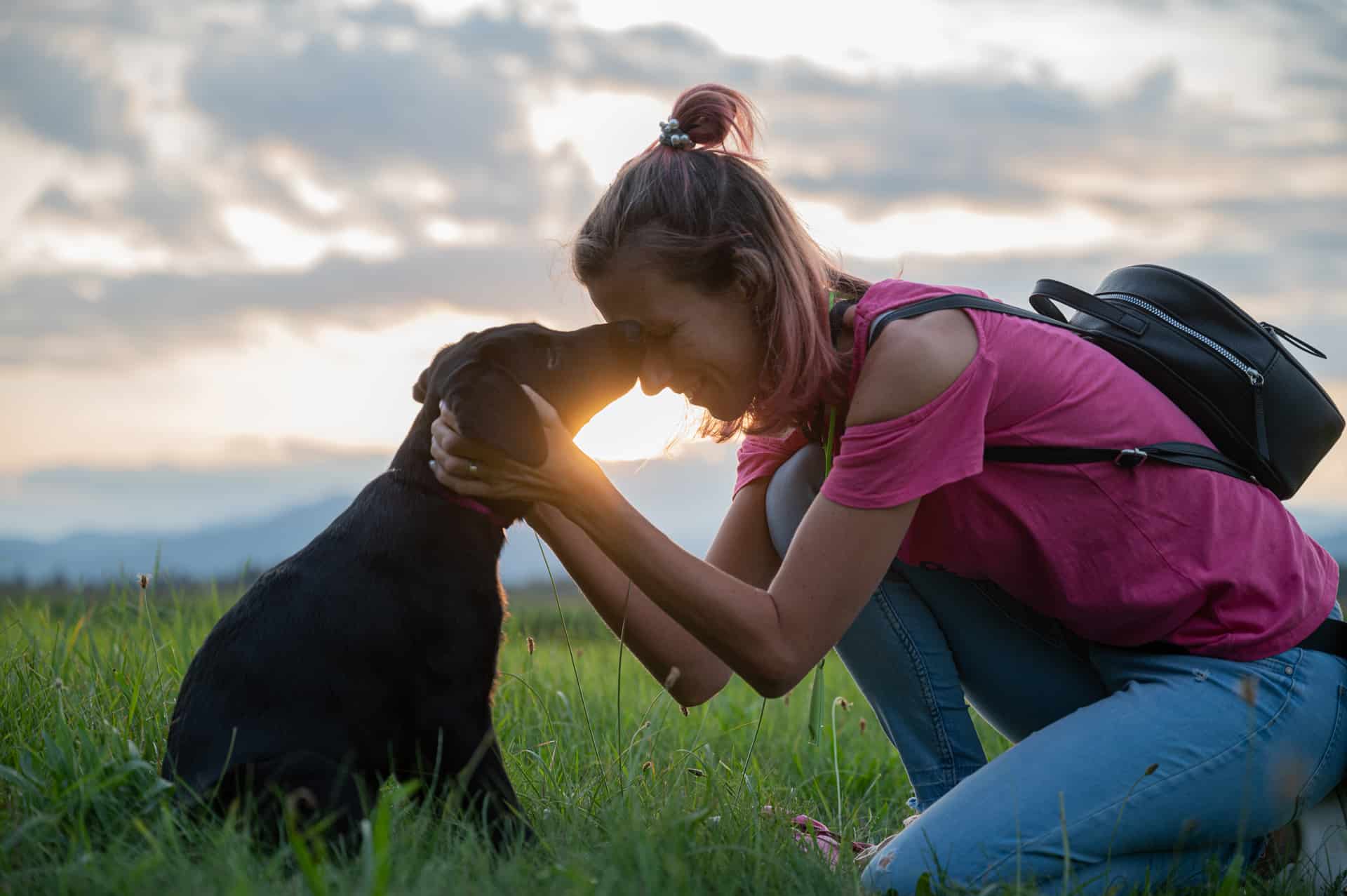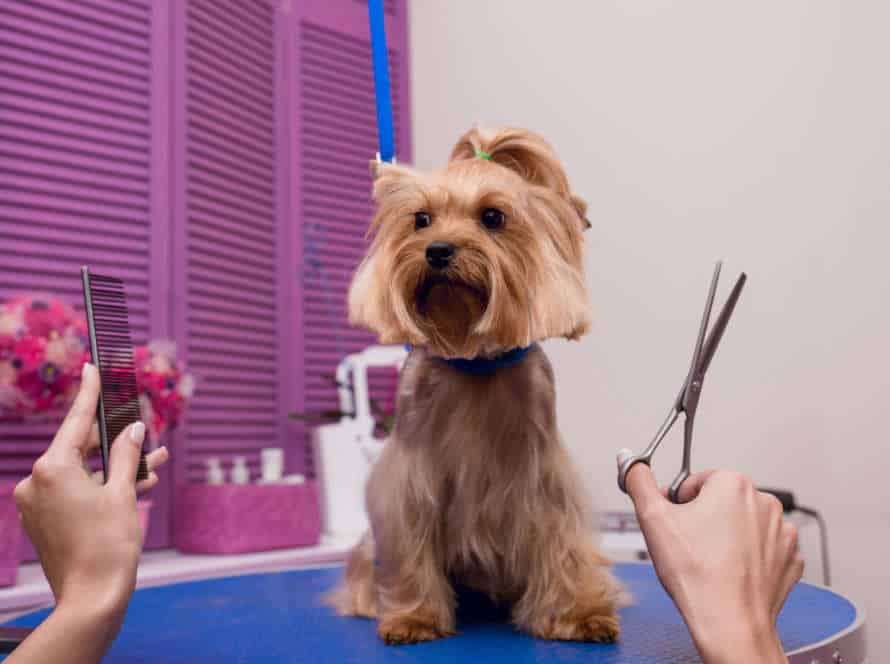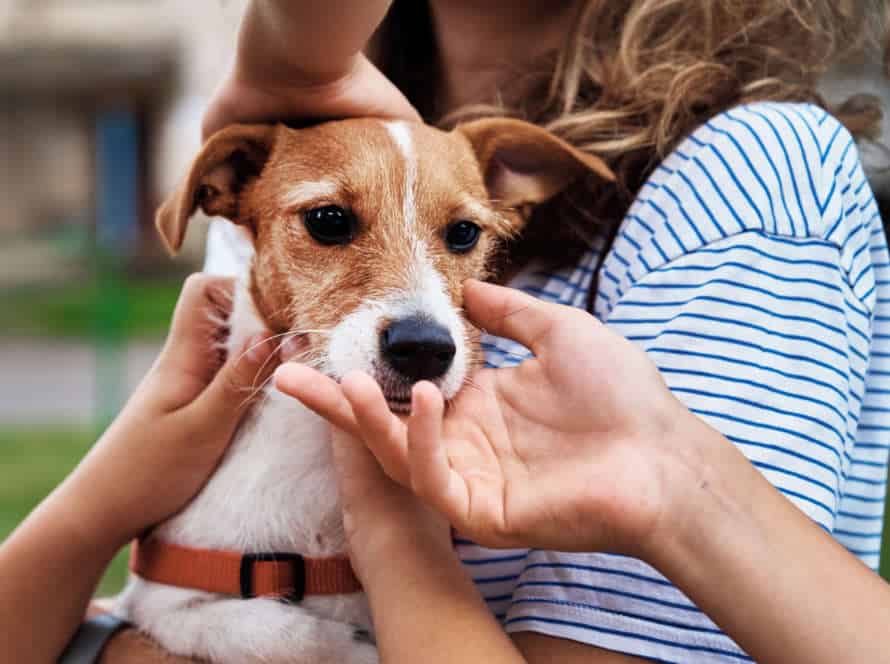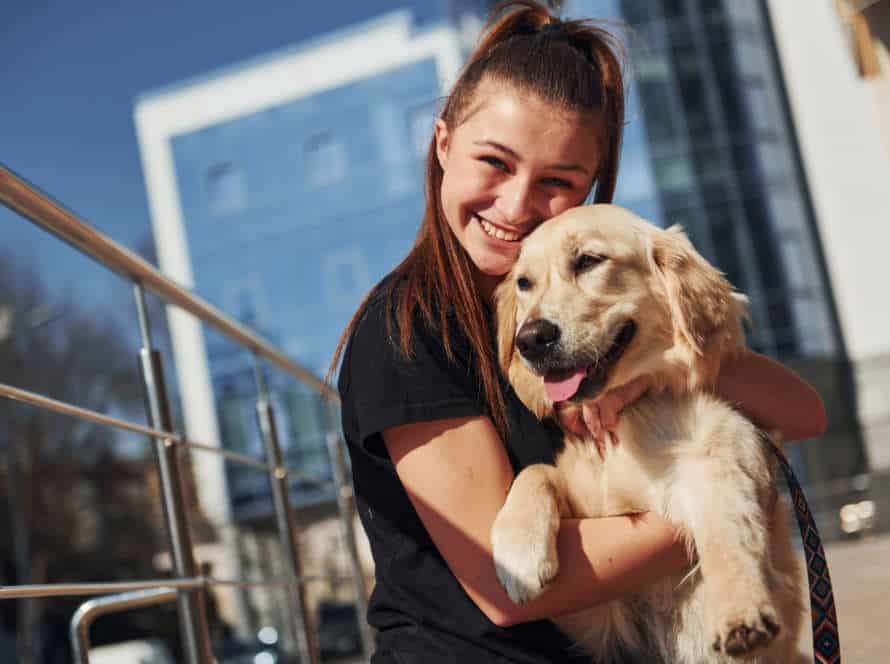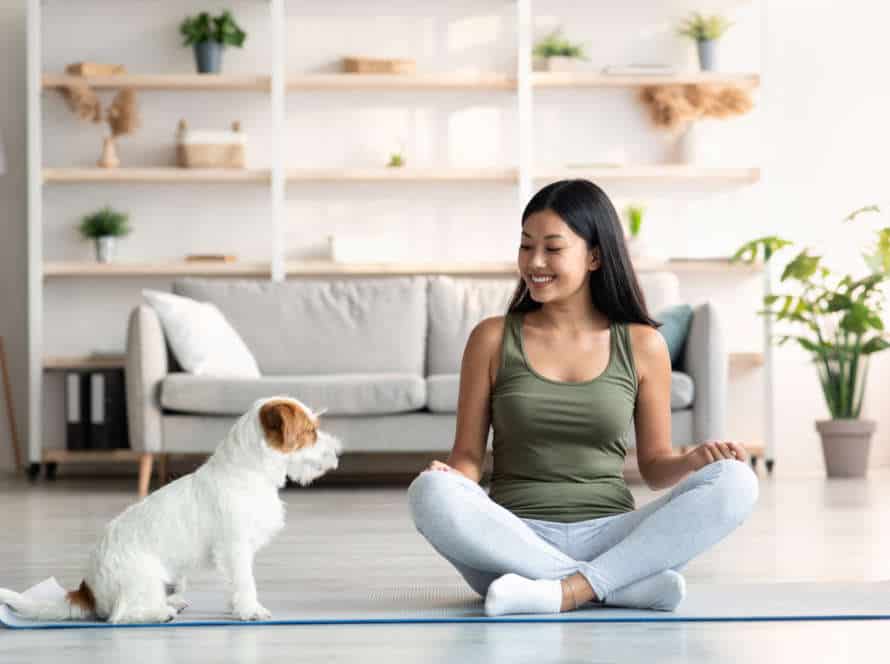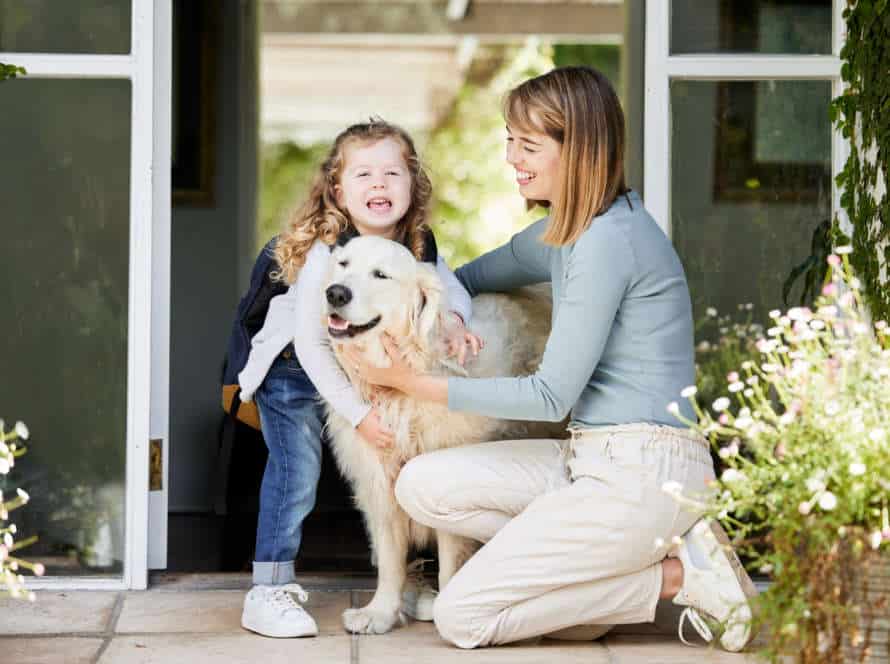Tips for Establishing Trust with Your New Puppy
Gaining trust with your new pup is essential for creating a long-term, healthy relationship. Here are some suggestions to help you build trust with your pup:
- Keep a daily routine that includes mealtimes, walks, and playtime.
- Use treats, praises, and love to praise good behaviour.
- Give your puppy their own space to sleep and relax, with toys and a comfy bed.
- Respect your puppy’s limits and avoid overwhelming them with too much attention or physical contact.
- Be patient and regular with training. Start with basic commands like ‘sit’ and ‘stay’.
- Spend quality time with your pup, bonding and playing together.
By sticking to these tips, you’ll be on your way to setting up a strong and trusting bond with your new pup that will last a lifetime.
Understanding Your New Puppy
Your pup is a fresh start, so you must build trust with it. Be patient, consistent and focus on positive rewards. You need to make a secure and pleasant atmosphere for your pup to learn and develop. Comprehending your pup – likes, dislikes, and requirements – is key to forming a bond.
Let’s dig in deeper!
Learning your puppy’s communication cues
Learning your pup’s communication cues is essential for forming a strong bond and gaining their trust. Here are some to look out for:
- Body Language: A wagging tail, relaxed position, and perked ears mean your puppy is content and calm.
- Vocalizations: Whimpering, growling, and barking are your pup’s way of talking to you. Look for body signals to help interpret the meaning.
- Eye Contact: Direct, long eye contact could mean your pup feels threatened. Avoiding eye contact might mean they’re nervous or submissive.
- Interactions with Objects: Observe what your pooch does when they interact with things like toys or food. It’ll give an idea of their likes and temperament.
Pro Tip: Always pay attention to your pup and respond suitably. With a bit of time and patience, you’ll get the hang of their special way of communicating. This’ll help keep them happy and healthy.
Establishing their routine
Creating a routine is a must for gaining your pup’s trust. Regularity is what pups need. A consistent system will make them feel secure in their new home.
Here’s some advice on how to create a routine:
- Feed and potty-breaks at the same times every day.
- Create a designated sleeping and resting spot.
- Include playtime and exercise as part of your pup’s daily routine.
- Reward good behavior with positive reinforcement.
- Exercise patience and consistency in training them. It takes time for pups to learn and adjust.
Pro tip: Making a routine takes time and patience. Keep consistent and your pup will come to rely on you as their caregiver.
Creating a safe, comforting space for your pup
For your pup’s trust and health, it’s essential to create a secure and cozy space. Here’s some advice:
- Introduce your pup to his home gradually – don’t overwhelm him.
- Prepare a special spot for your pup to sleep, eat and relax.
- Make your home puppy-proof to stop any accidents.
- Give your pup lots of toys and activities, including chew toys for his need to chew.
- Be patient and understanding as your pup settles into his new home.
These measures will help him feel safe and secure, and you can create a strong bond with him.
Building Trust with Your New Puppy
Gaining trust with your pup is a critical step. Make them feel safe in their new home. Be consistent with training tactics. Here are some tips to make a safe, trusting atmosphere for your furry friend:
- Give them space to explore.
- Establish rules and stick to them.
- Show patience and be consistent in how you respond.
- Offer lots of love and praise.
- Let them get used to you gradually.
- Spend quality time with them.
- Be a calm leader.
Patience and Consistency
Grow trust with your pup! Patience and consistency are key. Here are some tips:
- Be patient and understanding.
- Reward good behaviour – treats, toys, praise.
- Be consistent when training.
- Establish a sense of structure and routine.
- Have regular schedules.
- Build a bond through shared activities.
- Give them space but make them feel loved.
- Patience and consistency will bring trust that lasts a lifetime!
Positive Reinforcement Training
Positive reinforcement training is a humane way to create a bond with your pup. Reward their good behaviour instead of punishing bad deeds. These tips can help you build trust:
- Give treats, praises, and affection when they do something good.
- Be consistent in training.
- Keep sessions short and frequent.
- Use a clicker or “Good” to signal the desired behaviour.
- Don’t use physical punishment or scolding.
Remember! It takes time and patience. Positive reinforcement training can be a fun and bonding experience for both of you.
Daily Playtime with Your Puppy
Playing with your pup is an absolute must for establishing trust and connection. Plus, it’s great for their physical and mental health too! Here are some tips to get the most out of playtime:
- Make sure you set up a consistent routine daily.
- Ensure the toys are suitable for your pup’s age, breed, and size.
- Be gentle – no rough play that might cause aggression or harm.
- Use playtime to reinforce good behavior with training exercises.
- And don’t forget to supervise your pup to make sure everything stays safe.
Regular playtime is key for creating a strong bond with your pup.
Socializing Your Puppy
Socializing your pup is key! It’s essential for them to trust people and animals. Early socializing will lead to a great bond with their human family. Here are some tips for socializing your puppy:
Meeting new people and objects
Socializing your pup is essential for creating trust and a strong bond between you and your dog. Here are some pointers to help with meeting people and things:
- Introduce your puppy to various folks – children, men, women, of all ages and sizes.
- Practice positive reinforcement techniques to encourage your pup to approach people and objects without fear or aggression.
- Gradually show your puppy different environments, noises, and objects – such as cars, bicycles, vacuums, and water.
- Be patient. Allow your pup to adjust and feel comfy before introducing new experiences.
- Remember that socializing your puppy is an ongoing process. It requires time and attention.
Introducing your puppy to new dogs and animals
Socializing your pup to new dogs and animals is vital for building trust and good behaviors. Here are some tips to help you!
- Begin Early: Introduce your pup to other puppies, dogs and animals in a safe and controlled space.
- Monitor Carefully: Always supervise your puppy when it interacts with other animals, to avoid aggressive behavior or accidents.
- Positive Rewards: Encourage positivity like playfulness and friendliness with other animals by giving treats, toys or praising your puppy.
- Little Steps: Gradually increase the number and duration of interactions with animals over time, to help your pup feel more secure.
- Patience: Remain patient and consistent with training and socializing, each pup is different and may take varying amounts of time to adjust to new animals.
Pro tip- Don’t push your pup to interact with other animals if it’s not comfortable; give it time and space to adjust.
Encouraging good behavior around other people and animals
Encouraging good behavior when socializing your puppy is key. Positive reinforcement creates a strong bond for healthy relationships.
Here are some tips:
- Introduce your pup in a safe environment.
- Use treats and praise for staying calm and not jumping on people.
- Increase socialization gradually as your pup becomes more comfortable.
- Reward with praise and treats for displaying good behavior.
- Most importantly, be patient, consistent, and loving. Socializing takes time, effort, and love.
Ensuring Your Puppy Feels Secure
A trusting relationship with your pup is vital for a content, strong bond. Creating trust helps your pup feel safe in your house and with you. Making your pup feel protected is the first move to forming trust – the more secure they are, the more open they will be to trusting you.
Addressing Separation Anxiety
Separation anxiety in puppies can be hard to deal with. But, owners can help their pup feel safe while left alone. Here are tips:
- Start small – begin by leaving puppy alone for short periods, then gradually increase it.
- Encourage independence – give them toys, puzzles and treats to keep busy.
- Do calming rituals – try a quick walk or playtime before leaving. Or, leave their bed/blanket in a safe area.
- Goodbyes, low key – no fussing when leaving and keep greetings calm & brief.
- Professionals, if needed – if anxiety is severe, get help from vet or animal behaviorist.
Pro tip: Keeping a consistent routine can help create trust & reduce anxiety.
Teaching your puppy to stay calm when left alone
Teaching your puppy to be chill when left by itself can be tough. But, it’s crucial for your pup to feel secure and build trust with you! Here’re some tips to help train your pup:
- Create a routine. Make a daily schedule that includes alone time for your puppy. Start small and gradually increase the alone time.
- Designate a safe spot. Pick a certain area, like a kennel or a comfy bed, where your pup can relax and feel safe when alone.
- Provide distractions. Give your puppy toys or chewy treats to keep them busy and cool during alone time.
- Reward good behavior. When your pup stays calm and relaxed during alone time, reward them with treats or cuddles to reinforce the behavior.
- Be patient. Teaching your pup to stay chill when left alone takes time and patience. Don’t rush it, always approach your pup with love, care, and understanding.
Creating a secure living environment for your puppy
Creating a safe home for your pup is a must for their health and joy. To ensure your pup feels secure and develops trust in you as their owner, these tips will come in handy:
- Routine is key: Give your pup a consistent schedule for eating, playing, and sleeping. Stick to it as much as possible.
- Comfy sleeping place: Give your pup a warm and comfy area to rest. This will help them feel safe and secure.
- Socialize your pup: Let your pup meet new people, animals, sounds, and experiences. This will build their confidence and make them feel relaxed in different situations.
- Be consistent in training: Make sure you set boundaries and expectations. Do this by using consistent and positive training.
- Be affectionate and reward: Give frequent praise and positive reinforcement when your pup behaves properly. This will build their confidence and make them feel secure.
By following these tips, you can give your new pup a secure and loving home, allowing them to thrive and grow.
Building a Strong Bond with Your New Puppy
Forming a strong connection with your pup is essential for being a responsible dog owner. Establishing trust between you and your pup helps build a good behavior foundation, and strengthens the relationship. Here are some tips to help you and your pup’s bond grow strong:
Daily training and interaction with your puppy
Bonding with your pup is essential to ensure a long-term relationship. Interaction and training everyday will help build a closer connection. Here are some tips for establishing trust:
- Have fun playing fetch or going for walks.
- Use positive reinforcement to reward good behaviour and discourage bad behaviour.
- Give clear commands like “sit,” “come,” and “stay.”
- Spend quality time doing activities your pup loves.
- Create a secure and pleasant space for your pup to relax.
Pro tip: Be patient and stay consistent. Building trust takes effort, but it’s worth it.
Setting aside time for fun activities with your puppy
Spend quality time together with your puppy. This helps build trust and a strong bond. And, it creates positive feelings about training.
Here are some activities:
- Play fetch. Pick a soft toy and make a game of catching it.
- Go for a walk. Dogs need exercise. Walking is a great way to bond.
- Practice tricks. Spend time each day teaching simple tricks. Give treats and praise when your pup does well.
- Socialize. Have playdates and visit the dog park. Meet other dogs and people.
Pro tip: Keep safety in mind. Monitor behavior. Avoid overly stimulating or aggressive games.
Incorporating your puppy into your daily routine.
Bringing home a pup can be thrilling and delightful. To build trust, it’s essential to have a daily routine. Here are some tips to bond:
- Create a routine – Feeding, playing, walking and sleeping should be fixed.
- Teach commands – Sit, stay, roll over – fun tricks to learn with your pup.
- Socialize – Parks, people, other pooches – help your puppy trust and be comfy.
- Toys & treats – Reward pup with toys and treats for good behavior.
- Patience – Pups take time to adjust, so be loving and patient.
- Pro Tip – Consistency, love and trust is the key to a strong bond.
Frequently Asked Questions
Q: How do I establish trust with my new puppy?
A: The best way to establish trust with your new puppy is to spend time with them daily, provide them with food and water, and be patient and consistent in your training efforts.
Q: Should I punish my puppy when they make a mistake?
A: No, punishing your puppy can actually undermine trust and hinder the training process. Instead, focus on positive reinforcement and redirecting their behavior towards more appropriate actions.
Q: What are some methods of positive reinforcement?
A: Positive reinforcement can include verbal praise, treats, and playtime. It’s important to reward good behavior consistently, so your puppy understands what is expected of them.
Q: Can I establish trust with my puppy if I adopted them from a rescue?
A: Absolutely! While it may take a bit more time and patience, you can definitely establish trust with a rescue puppy. The key is to give them the love and attention they need, be consistent in your training efforts, and provide a safe and comfortable living environment.
Q: How can I show my puppy that I am trustworthy?
A: Trust is a two-way street, so it’s important to be reliable and consistent in your own behavior. Stick to a schedule, provide a safe and comfortable living environment, and demonstrate through your actions that you are a trustworthy and caring caregiver.
Q: How long does it take to establish trust with my new puppy?
A: It can take time to establish trust with a new puppy, and the timeline can vary depending on the individual dog’s personality and past experiences. Consistency, patience, and positive reinforcement are key to building a strong bond with your new pup.

